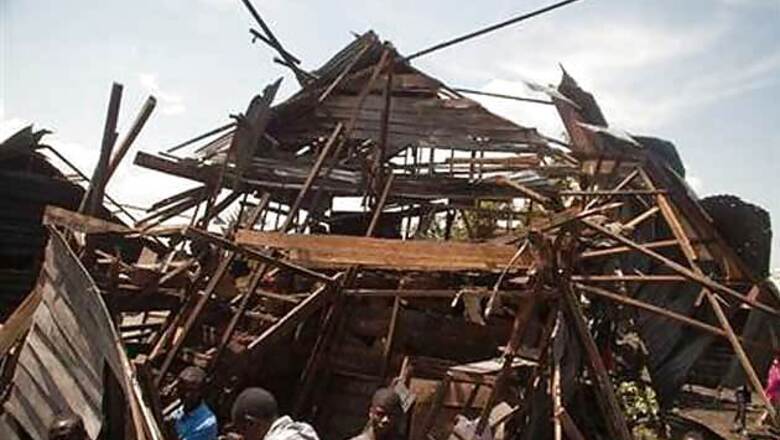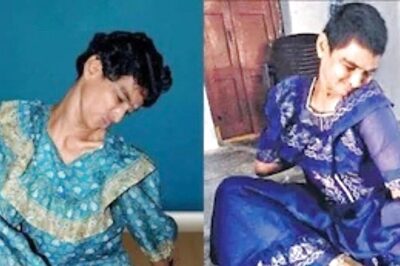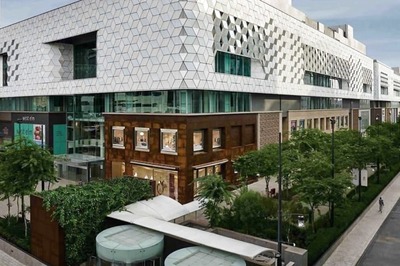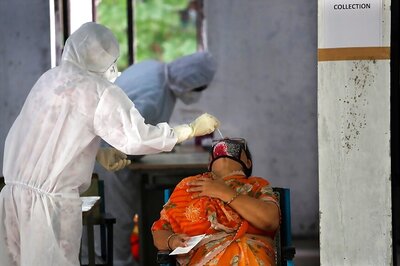
views
UN forces joined Congolese soldiers on the front line on Saturday where they fought rebels in the country's volatile east for hours, officials said, as border tensions escalated between Rwanda and Congo.
Scores of angry residents took to the streets of Goma in protest following several days of violence that have left at least seven dead in this city of nearly a million people near the Congo-Rwanda border. Two civilians died in the demonstrations, and the UN called for a joint investigation.
"We are using artillery, indirect fire with mortars and our aviation, and at the moment we have troops in the front line alongside the FARDC (government forces)," the UN force commander in Congo, Gen Dos Santos Cruz, said.
The UN's new intervention brigade, which has a stronger mandate than past UN peacekeeping missions and is authorized to fight the rebel forces operating in eastern Congo, engaged this week in fighting for the first time since it was created in March.
There has been widespread skepticism in Congo that the intervention brigade will be a game-changing addition to the existing UN force, which stood by when M23 fighters briefly captured Goma late in 2012.
Congo's information minister immediately blamed a Saturday rocket attack that killed three people in Goma on neighboring Rwanda, which has long been accused of supporting the eastern Congolese rebel movement known as M23.
"We wonder, for how long will the international community continue to tolerate these offenses?" Lambert Mende, a spokesman for the Congolese government, told The Associated Press.
However, the UN force commander told journalists he had no doubt the rockets were fired from M23 rebel positions.
Rwanda, which has vigorously denied allegations by the United Nations and others that it has provided support to the M23 rebels fighting the Congolese government, also accused Congolese forces of attacking Rwanda. The Rwandan army said mortar fire landed in several villages along the border on Friday.
Brig Joseph Nzabamwita, a spokesman for Rwanda's military, said "acts of provocation that endanger the lives of Rwandan citizens will not remain unanswered indefinitely."
The M23 rebel group briefly took Goma last November and subsequent peace talks in neighboring Uganda have repeatedly stalled. M23's leaders previously headed other rebel groups in the region that were backed by Rwanda. The rebel group is made up of hundreds of Congolese soldiers mostly from the Tutsi ethnic group who deserted the national army last year after accusing the government of failing to honor the terms of a deal signed in March 2009.
Congolese army spokesman Col Olivier Hamuli said that the fighting with rebels resumed around 5 am on Saturday and continued for at least seven hours. Hamuli said UN peacekeepers had destroyed an M23 rebel tank, and that a South African peacekeeper had been seriously wounded.
New mission chief Martin Kobler, the UN secretary-general's special representative in Congo, has journalists that the UN brigade will protect Goma. He said the UN's objective in recent heavy fighting outside Goma was "to defend the town but also to eliminate the M23's positions."
The intervention brigade, consisting of Tanzanian, South African and Malawian soldiers, was created by the UN Security Council in March and has deployed to Congo over the past few months, reinforcing 17,000 UN blue helmets already with MONUSCO.
Main roads through Goma were blocked early Saturday by burning tires and crowds chanting anti-MONUSCO slogans. A UN car was set on fire during the melee, but calm had been restored by Saturday afternoon.
Demonstrators later carried the body of a boy killed Saturday toward the UN headquarters to protest alleged UN inaction in Goma before they were dispersed by police using tear gas.
Kobler, the UN mission chief, said he understood people's impatience with the barrage of rocket attacks, "but the UN are not the enemy."
Mineral-rich eastern Congo has been destabilized by a myriad of armed groups since the aftermath of Rwanda's 1994 genocide when Hutu extremists blamed for the bloodshed fled to Congo.




















Comments
0 comment